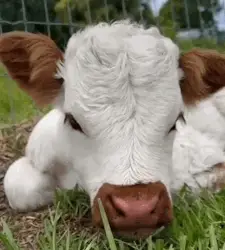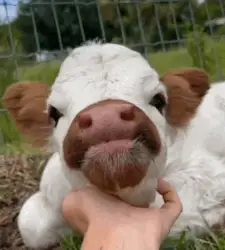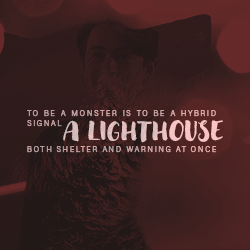Sin muchas vueltas, este es mi tumblr de rol personal donde me gusta subir cosillas del rol y de mis personajes.
Don't wanna be here? Send us removal request.
Text
50 questions for creating your OC
What are the fundamental personality traits of the character?
What values are important to the character?
What does a typical day in the character's life look like?
What external features characterize the character?
What is the character's relationship with their family?
Are there specific traumas or formative events from the character's past?
What secret desires or hidden fears does the character have?
How does the character handle stress or pressure?
What type of humor does the character have?
What music does the character enjoy?
How does the character deal with conflicts, both internal and external?
What moral dilemmas might the character face in the story?
Does the character have specific rituals or habits?
How does the character show affection or love?
What dreams or ambitions does the character have for the future?
Does the character have a specific clothing preference or style?
What is the character's relationship with technology or magic (depending on the genre)?
In what environment does the character feel most comfortable?
How does the character impact other characters in the story?
What lessons or teachings has the character drawn from past experiences?
What hobbies or interests does the character pursue?
What kind of education or training has the character enjoyed?
How does the character cope with loss?
Does the character have specific biases or prejudices?
How does the character react to changes in their life?
What role does the character play in the community or society?
What type of humor does the character have?
What secret talents or abilities does the character have?
How does the character assess their own self-worth?
What role do friendships play for the character?
How does the character deal with successes and failures?
What significance does the character have for the main story?
What political views does the character hold (if relevant)?
What type of environment or nature does the character particularly like?
What emotions dominate the character in stressful situations?
How does the character envision their own future?
What challenges does the character face?
What is the character's relationship with technology or progress?
Does the character have specific rituals or habits?
How does the character react to cultural differences?
What kind of leisure activities does the character enjoy?
How does the character see their own role in the world?
What fears or insecurities does the character have?
What political or societal beliefs does the character hold?
How does the character deal with aging?
What role does the character play in their own family?
How does the character behave in romantic relationships?
How does the character see their own identity?
What decisions will the character make in critical moments?
2K notes
·
View notes
Text


Bir insan için mutluluğun en saf hali. yalnızca merhametle verilen sevgidir. gerisi tamamen dünyevi bir ziyan..
An innocent love..
2K notes
·
View notes
Text
Crafting Compelling Villains
1. The "Evil for the Sake of Being Evil" Villain:
This type of villain lacks depth and clear motivations. They simply exist to be wicked and cause chaos without any believable reason or backstory.
2. The One-Dimensional Bully:
This villain is characterized solely by their physical strength or intimidating presence. They lack complexity, depth, and fail to challenge the protagonist on an intellectual or emotional level.
3. The Overpowered and Unbeatable Villain:
This villain is excessively powerful with no apparent weaknesses or vulnerabilities. They pose no real threat to the protagonist, as their defeat seems implausible or impossible.
4. The Expository Villain:
This villain constantly explains their evil plans and motivations without any subtlety or nuance. Their dialogues become monotonous and predictable, diminishing the impact of their character.
5. T The Forgettable Villain:
This villain lacks distinct traits, memorable characteristics, or a unique presence. They fail to leave a lasting impression on readers and are easily overshadowed by other elements of the story
6. The Plot Device Villain:
This villain exists solely to advance the plot without any independent goals or desires. They lack agency and depth, merely serving as a convenient obstacle for the protagonist to overcome.
7. The Unrelatable Monster:
This villain is completely devoid of humanity or relatable qualities. They are monstrous in every sense, lacking any redeeming or understandable characteristics that could engage the audience emotionally.
8. The Placeholder Villain:
This villain is introduced briefly and abruptly, without any significant development or impact on the story. They serve as a mere distraction or temporary obstacle, leaving readers feeling unsatisfied.
9. The Inconsistent Motivations:
This villain's motivations and actions are erratic and inconsistent, making it difficult for readers to understand their choices. Their lack of clear direction undermines the credibility and coherence of their character.
2K notes
·
View notes
Text
How to write emotions
How to write emotional scenes
How to show emotions Part I
How to show emotions Part II
How to show emotions Part III
6K notes
·
View notes
Note
Hi! I’ve noticed these days that my writing is struggling between sounding very formal and proper versus sounding casual. On one hand, I’ll have a sentence that looks like it came straight out of a 1940s British series, but two lines later there’s some casual dialogue that’s closer to an American teen novel. I grew up with both types of books tbh, so maybe that’s why? How do I stabilize my writing style and make it a little more consistent? Thank you!
Stabilizing Voice in Writing
There are three types of "voice" that play a role in how your writing sounds... authorial voice, narrative voice, and character voice.
Authorial voice is your writing style as an author. In many ways, it's your "writer personality." It's what makes your writing distinctive from another writer's. While authorial voice tends to be consistent across all stories, it will evolve with time and may even change slightly for particular projects--especially when crossing genres. Authorial voice includes things like how much/little description you use, how simple or ornate that description is, how you use word play, and the types of words you use. Narrative voice is the "voice/voices" with which the story is told. This is made up of point-of-view (the perspective from which the story is told, for example, first-person or third-person limited), as well as your writing style and use of language. Anything the narrator says falls under narrative voice.
Character voice is the way a character's personality comes through in the things they think and say. It includes things like whether they're concise or wordy when they speak, slang and catchphrases, quirks of speech like saying "um" or "uh" a lot, how their attitude is reflected in what they think and say, accent, and the kinds of words they use.
When you have a first-person narrator, narrative voice and character voice are combined, because the character's voice IS the narrative voice.
So, there are several quick exercises you can do if you want to stabilize the voice in your writing:
1 - Do a little analysis of your own writing style (so far). Remember: writing style is something that evolves over time, so you might not have a fully established writing style yet, but you should be able to look at what you write and start to see some patterns. In your case in particular, do you gravitate more toward formal speech than casual speech? Can you think of any writers whose style matches what you'd like your writing style to be? Try reading more of their books, or read a chapter an analyze the writing style to see what you can mimic.
2 - Think about the narrator of your story... Even if it's a third-person omniscient, faceless narrator, it can still help to assign a sort of mental picture for who this person might be and who they're telling the story to. Is this someone who experienced it telling the story in third-person long after the fact, with 20/20 hindsight, to someone who might be interested? Is this a god who watched it all unfold and is retelling the tale to an audience of other gods? Is it an old grizzled storyteller telling the story to a rapt audience around a campfire? Try to choose something that makes sense as far as who might be telling this story, who they're telling it to, and why. It's not that you're including this as part of the story, but rather as a sort of placeholder for your brain any time you're in narrator mode. If you can slip into this narrator's shoes as you write the narrator parts, it sometimes helps you "get into character" and stick with a consistent, relevant narrative voice.
3 - Establish character voice... Character voice does have an impact on narrative voice, even if the story isn't told in first-person. In third-person stories, who the characters are can tell you a lot about who your narrator might be (so it might help to do this step before #2 above...) For example, if your characters do happen to be a bunch of 1940s Brits, you can start to think about who they are and what they experience to figure out who the narrator might be. In this case, it probably wouldn't make sense for the narrator to be a god telling the story to other gods (as that feels too mystical for this narrator), but a grizzled storyteller recounting the tale around a campfire might make sense.
If your story's being told in second-person (You walked to the window... Like a Choose Your Own Adventure) or first-person (I walked to the window...) character voice relates even more to narrative voice, because in second-person, even though the narrator is not the POV character, the narration is still being filtered through the POV character's personality, knowledge, and experiences. And in first-person, the narrator IS the POV character, so the narrative voice and character voice are one and the same.
By doing these exercises, you can start to hone each of these voices to find some stability. Happy writing!
•••••••••••••••••••••••••••••••••
I’ve been writing seriously for over 30 years and love to share what I’ve learned. Have a writing question? My inbox is always open!
LEARN MORE about WQA
VISIT MY Master List of Top Posts
COFFEE & COMMISSIONS ko-fi.com/wqa
160 notes
·
View notes
Text
Master Prompt List
Romantic Prompts
Romance Prompt Lists (Masterpost)
Bad romances/unrequited/break-up (Masterpost)
Flirting + Teasing Prompts (Masterpost)
Two smart and also stupid people in love
Romance Dialogue - Bubbly + Reserved
Push and pull romantic prompts
Jealousy Prompts
Things said during sex Prompts
Awkward Post-Sex Dialogue
Smut Prompts (Masterpost)
One-Liners Dialogue - Romantic, Smutty + Physical (Masterpost)
Love Language - Showing, not telling love
Love Language - Showing you care
Romance Dialogue Prompts – Uncomfortable with affection
Grumpy Affectionate Dialogue
Grumpy + Sunshine Dialogue
Inexperienced with romance Prompts
Love Confessions (Masterpost)
Lovers being caught Prompts
OTP Christmas Prompts
Meet Cutes/Meet Uglies
Relationship Milestones (Masterpost: moving in, getting married, honeymoon, having children)
Physical Reactions
Seeking out physical affection
Romantic, non-sexual intimacy prompts
Date Prompts (Masterpost)
Forbidden Romance
Secret relationship dialogue
Love-hate relationship
Reluctant allies to friends to lovers dynamic
Lovers to enemies
Reasons for lovers turning to enemies
Exes to lovers Prompts (Masterpost)
Flirty friends to lovers Prompts
Friends with benefits to lovers Prompts
Enemies to friends with benefits Prompts
Enemies to friends Prompts
Neighbors to Lovers Dialogue Prompts
Best friends to lovers Prompts
Childhood friends to lovers Prompts
Childhood friends to enemies to lovers prompts
Matchmaking Prompts
Fake Dating Prompts (Masterpost)
OT3 Prompts (Masterpost)
Love Triangle Ideas
Second chance trope
OTP Prompt Challenge
Relationship Changes
Bed Sharing Scenarios
Kisses Masterpost (Prompts, First Kiss, Accidental Kiss, …)
Enemies to Lovers (Masterpost)
Ship Dynamics
WLW Plot Ideas
Fluffy Prompts
One Hundred Compliments
Giving the reader butterflies with your characters
Making your characters blush
Domestic fluff prompts
Soft Domestic Stuff
Pregnancy Prompts
Sleepy Starters
Fluff Prompts
Fluffy Dialogue Prompts (x)
Fluffy Sentence Starters
Cute Interactions
Hand-holding
Touching
Hugs
Super soft intimacy
make ‘em swoon
Casual Affections
Affections without touching
Touches Ask Games
Things to do at a carnival
Cooking/Baking Dialogue Prompts
Quiet movie night Prompts
Having fun in the rain
Height Difference Prompts
Same Height Prompts
Caregiving Ideas
Doing nice things prompts
Hurt/Comfort Prompts
Hurt/Comfort Prompts (Masterpost)
Injury Dialogue Prompts
Sickness Dialogue Prompts
Angsty Prompts
Angsty Prompts
Angsty Dialogue (Masterpost)
Leaving Dialogue Prompts
Reunion Dialogue Reactions
Unwilling goodbye + love confession prompts
Trying to make them stay Dialogue Prompts
Sacrificing Dialogue
Amnesia Prompts
Amnesia Dialogue
Bad Luck Prompts
Lover being hurt Prompts
Drama Starting Points
Conflicts for Couples 1 + 2
Betrayal Dialogue Prompts
Hiding from horror dialogue
Finding out the truth dialogue
“I’m sorry…” Apology Starters
Saying I’m sorry…
Apologizing for emotional neglect
Talking it out ideas
Keeping loved ones apart
Family Prompts
Family Prompts (Masterpost)
Friends/Fun Prompts
Friends Prompt Challenge
Platonic activities for friends
Online Friends Prompts
Group of Friends AU Prompts
Opening Sentences (Friend group in NYC)
Road Trip Ideas
Party Games Prompts
Drunk Friendgroup
Drunk Dialogue
Amusement Park Activities
Surprise party gone wrong
Settings for conversations
Having fun in the rain
Bar Conversation Starters
Girls’ night out ideas
Outside of school activities
Walking to school prompts
Rekindling Friendship Dialogue
Slow dancing with a friend
AU Prompts
AU ideas
Royalty AU (Masterpost)
Victorian AU Prompts
Historic Prompts - 1800s Ball Prompts
Parallel Universe Romance Prompts (x)
Roommates AU (Masterpost)
Sport Romance Prompts
College/School AU (Masterpost)
Hogwarts Prompts
Workplace AU (Masterpost)
Neighbor AUs (1 + 2 + 3)
Fan x Celebrity Prompts
Road to fame ideas
Gossip Girl/Rich AUs
Dancer Prompts
Coffee Shop AU (Masterpost)
Bookstore AUs
Flower Shop AUs
Bodyguard AUs
Bodyguard Dialogue Prompts
Firefighter/Police AUs
Lawyer AUs
FBI Mentor and Mentee Prompts
Patient and Doctor Prompts
Groundhog Day Prompts
Pirate Prompts
Spy Prompts
Soulmates AU (Masterpost)
Lifeguard AUs
Band AU Prompts
Rockstar AUs
Eurovision Prompts
Supernatural/Mystery/Thriller/Crime Prompts
Ghost Prompts (Masterpost)
Mermaid Prompts
Guardian Angel Prompts
Summoning a God Prompts
Life & Death Prompts
Showing aliens the human world
Murder Mystery/Thriller Prompts (Masterpost)
Survival Game Prompts
Partners in Crime – Meeting again
FBI mentor and mentee prompts
Assassins Banter Dialogue
Assassin x Target Prompts
Heist Prompts
Hero x Villain (Masterpost)
Falling for the kidnapper prompts
Causes for the apocalypse
Post-apocalyptic romance prompts
Fantasy/Sci-Fi Masterpost (Werewolves, Vampires, Time Travel, etc.)
Holiday/Seasonal Prompts
Monthly Prompt Lists
Spooktober/Halloween Prompts
Christmas Prompts Compilation
24 Days of Gift-Giving - Advent Calendar
Fluffy winter holiday prompts
New Year’s Eve Prompts
New Year’s Dialogue Prompts
Valentine’s Day Prompts
Spring Vibes
Summer Vibes
Fall Vibes
Fall AUs
Winter Vibes
Birthday AUs
Birthday Prompts
Ranked Prompt Lists
Ranked Lists (Top 20 Lists, Best Prompts/Posts of the Year)
Various Prompt Lists
Random Prompt Lists
Favourite Tropes
5 + 1 Fic Prompts
‘Write about’ Prompts
‘Imagine your OTP’ Prompts
All The Fic Titles
All The Prompts List
List of Names
Writing Games
Ask Games
Daily Writing Challenge
30 Days Writing Challenge
AU & Trope Combos
If you like my blog and want to support me, you can buy me a coffee or become a member! And check out my Instagram! 🥰
29K notes
·
View notes
Text



So, make the friendship bracelets, take the moment and taste it You've got no reason to be afraid
@centuriesrpg
8 notes
·
View notes
Text
Some tips to help you improve your writing style:
1. Read widely: Reading a variety of genres and authors exposes you to different writing styles and helps you develop a broader vocabulary and an understanding of various sentence structures. For example, if you want to improve your descriptive writing, read books by authors known for their vivid imagery like J.R.R. Tolkien or Gabriel Garcia Marquez.
2. Write regularly: Like any skill, writing improves with practice. Set aside dedicated time for writing, whether it's a journal entry, a short story, or an essay. Consistency is key. By writing regularly, you'll become more comfortable expressing your ideas and develop your unique voice.
3. Be mindful of your audience: Tailor your writing style to suit your target audience. Consider their level of familiarity with the subject matter, their interests, and their expectations. For instance, if you're writing a scientific paper for experts in the field, use technical language and provide in-depth analysis. On the other hand, if you're writing a blog post for a general audience, use accessible language and relatable examples.
4. Use active voice and strong verbs: Active voice makes your writing more direct and engaging. It emphasizes the subject performing the action rather than the action itself. For example, instead of saying "The ball was thrown by John," use "John threw the ball." Strong verbs also add clarity and power to your writing. Compare "He walked slowly" with "He sauntered" or "He ambled."
5. Vary sentence structure: Experiment with different sentence lengths and structures to maintain reader interest. A mix of short, medium, and long sentences can create rhythm and flow. For example, a series of short, punchy sentences can build tension or convey urgency, while longer sentences can provide detailed explanations or set a contemplative tone.
6. Use precise and vivid language: Choose words that convey your meaning precisely and evoke vivid imagery. Instead of saying "The flower looked pretty," you could say "The delicate blossom bloomed in vibrant shades of crimson and gold." Specific and descriptive language brings your writing to life and engages the reader's senses.
7. Edit and revise: Good writing often requires multiple rounds of editing. After you finish a draft, take the time to review and revise your work. Look for clarity, coherence, and grammar errors. Consider whether each sentence contributes to the overall message and whether the organization of your ideas flows logically. Don't be afraid to make significant changes if they improve your writing.
8. Seek feedback: Share your work with trusted friends, colleagues, or writing groups. Constructive feedback can help you identify blind spots and areas for improvement. Consider their suggestions while maintaining your unique voice and style.
2K notes
·
View notes
Text
Guide: Natural Character Arcs
Anonymous asked: My MC will have a "not my circus, not my monkeys"- behavior, but I want her to slowly want to help peopel as she gets more powerful throughout the series and eventually grows into her role as protector of the people. I want to give her natural character growth without it seeming "out of nowhere" or "out of character" since it will be a total 180 from the start of everything. Do you have any tips for the natural transition in character development that is drastically different from the start?
(Ask edited for length...)
Having a character do a complete but natural 180 between the beginning and end of the story is what's called a "character arc."
Here are the steps in creating a natural character arc:
1 - Understand the Internal Conflict - Stories are either plot-driven (centered on an external conflict/problem in the character's world), character-driven (centered on an internal conflict/problem in the character's self), or a combination of both. Character arc occurs in stories that are character-driven or both plot and character-driven, mainly in the protagonist and other important main characters. It's this problem in the character's self that causes who they are in the beginning of the story, and it's this problem that they must resolve in order to change by the end.
2 - Choose a Relevant Internal Conflict - Your protagonist needs to have an internal conflict that is relevant to the story events. If your story is entirely character-driven, the character arc is the whole story. The events of the story should naturally stem from your character's journey to resolve their internal conflict. If your story is partially plot-driven, the internal conflict should tie into the external conflict in some way. Both conflicts should stem from the same problem, or the path that leads to resolving the external conflict should lead to resolving the internal conflict--either directly or indirectly.
3 - Events = Experiences = Change - As the events of your story unfold, your character should have experiences as a result of those events that impact their understanding of their internal conflict. Let's say your character's internal conflict is the belief that they have no value beyond their role in a villainous organization. As the events of the story unfold, they would need to start seeing evidence that challenges that belief, makes them ask questions, and motivates them to push against the boundaries of that belief. In other words, as this character gets involved with things outside the organization, they start to see evidence that they do have value outside their role in the organization. This avalanches into questioning not just their belief but the organization itself and their involvement of it. As they test the waters of this new understanding and find confirmation that change is right for them, the change naturally takes place.
4 - Include Doubts, Fails, and Setbacks - Although you want the overall trajectory of their arc to be in the direction of their change, you still want to illustrate their doubts (Could this really be true? Do I really have value beyond the organization? Could the organization be bad? No, surely that can't be right...) and have the occasional failure or setback in their attempt to change. In other words, you don't want them to have an easy transition from where they are at the beginning to where they are at the end. Their internal conflict's claws are in pretty deep, so there needs to be some struggle as they try to move in a different direction.
5 - Show the Completed Change in Action - Wherever they end up, you want to give the character the opportunity to show that they've changed. For example, maybe the villainous organization comes at them with an "offer they can't refuse," and the old them would have jumped at that opportunity, but they're not that person anymore. Showing them refusing this offer illustrates that they've really and truly changed once and for all.
Happy writing!
•••••••••••••••••••••••••••••••••
I’ve been writing seriously for over 30 years and love to share what I’ve learned. Have a writing question? My inbox is always open!
Learn more about WQA
Visit my Master List of Top Posts
Go to ko-fi.com/wqa to buy me coffee or see my commissions
279 notes
·
View notes
Text

Y es que a veces nuestra inspiración no es compatible con nuestra vida fuera del foro.
47 notes
·
View notes
Text




There is literally nothing you can do that is going to take you away from me...
@centuriesrpg
8 notes
·
View notes
Text






'Cause I'm in a field of dandelions
Wishing on every one that you'll be mine
@centuriesrpg
11 notes
·
View notes
Text
instagram
2 notes
·
View notes
Text
instagram
1 note
·
View note
Text






@centuriesrpg
5 notes
·
View notes











